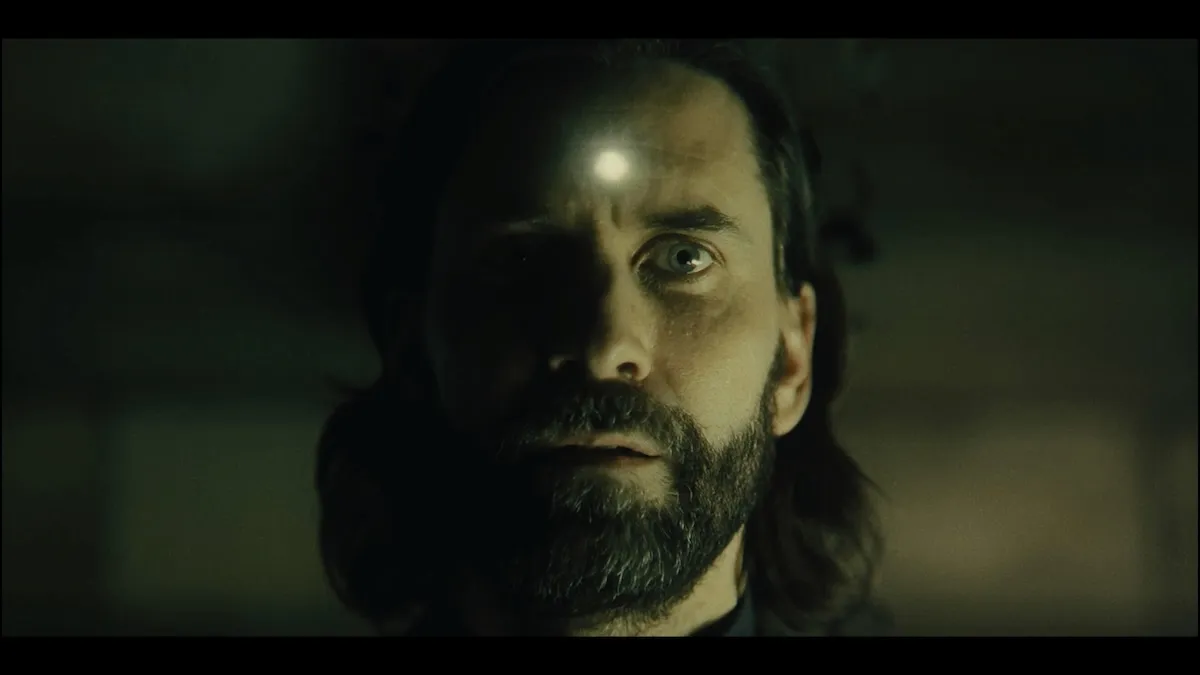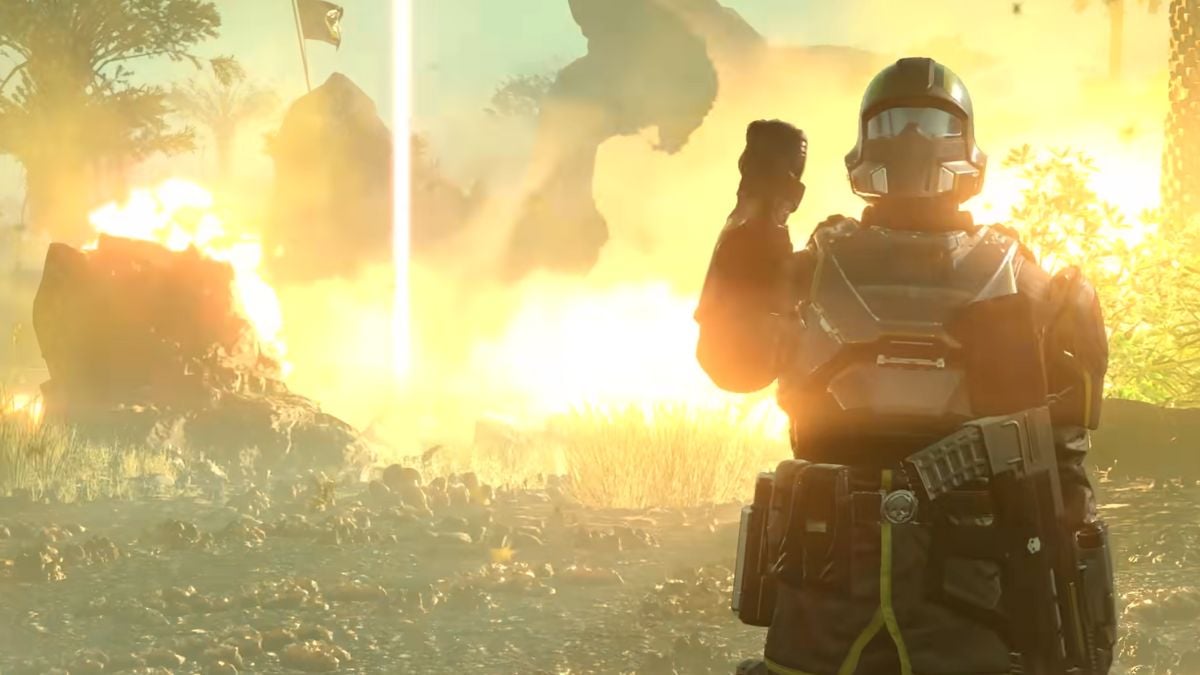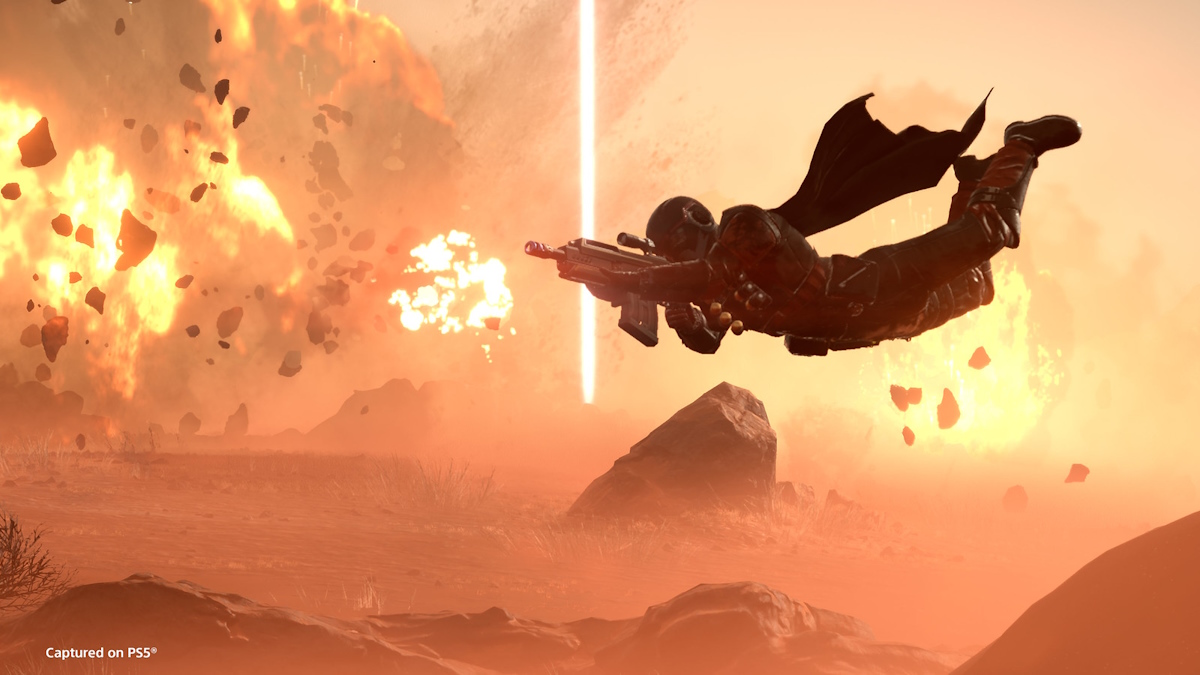

[Editor’s note: megaStryke wrote up this piece on the word vision and how it’s thrown around in relation to videogames. — CTZ]
Far be it from me to impose my thoughts on how software developers should direct their projects. If I had my way, games would return to NES-era pixelated affairs. I mean, my favorite game of this past year was Mega Man 9! However, I understand that mine is not the ideal direction for the industry, that there is no reason to dump technology over some fantasy retro utopia. It’s not like I don’t enjoy the current stable of software anyway. Now, I know you guys out there, the forum warriors and the blog commenters. Always up for a good debate, you will argue over the capabilities of you favorite consoles and how games could look and play better on one over the other. That’s fine. My problem lies with some of the inane arguments typically paraded, one in particular which totally rubs me the wrong way.
To set the scene, imagine that you are anticipating high-profile console exclusive game when an announcement is made that it will be ported over to a competing console. Maybe it will be a direct port but perhaps it will be a down-port. Perhaps this game is a former PS3-exclusive being reworked for the Wii. In another case, you have been following the lead of a promising new game for an unannounced platform. It sounds totally sweet and awesome and the hype begins to consume you. Then the big reveal is made and it turns out to be… a DS game. At some point, the following will be dropped: “This is a disgrace! Such wasted potential! Why should the developers sacrifice their vision just to make a little extra cash?” I’ve read those lines far too often and so have you. I find it hard to believe that this is based in any genuine concern towards the advancement of as a “visionary” medium. Let’s explore this curious term that has found its way into the gaming community lexicon, shall we?
What’s “vision”? Better yet, who is visionary? Why, artists are visionary! We use the term as a means with which to link games and art because developers are like artists and you would never ask an artist to sell himself or herself out for a little extra pocket change. No, the original vision must be preserved and realized however the artist sees fit. There’s a problem with this analogy, though. “Art” in and of itself is not a profitable venture when applied to the demands of the media industry. You may have “artists” working in the art department, on the sound team, or with the writing crew, yet all of them toil within the confines of a project intended for distribution to a buying public. Debate all you want on whether or not an overall project, game or film or whatever, is a genuine work of art after it is released… it is a product first and anything else second. If the product doesn’t meet publisher expectations, expect to see a little less “art” next time around. This is contrary to the mental image of the world-renowned painter crafting masterpiece after masterpiece in the comfort of his private studio. It’s a glorious scenario but not typically a profitable one. A lot of the most famous painters in history lived and died in poverty… Van Gogh anyone? The “starving artist” persona is one I highly doubt any sane game staffer seeking financial stability would pursue.
The truth is that games are dictated not only by orders from higher authorities but also by time constraints and budget concerns. Milestones need to be met and stuff winds up on the cutting table. A level here, an extra boss battle or two, a little “tightening up on the graphics,” cut, cut, snip, snip. No game is ever shipped with all the content that the developers had originally planned. Some of it goes into the sequel, some of it is lost, and all are victim to the mechanizations of the software development cycle. In this sense, no developer’s “vision” is ever truly achieved. Sure, project leads can and will fight to retain as much content as they can, but those with the most pull are the ones who have proven themselves to be masters of their craft. You can count on one or two hands the number of game developers who are respected enough to be given free reign to spend as much time and money to ensure a blockbuster as they so desire… legends like Shigeru Miyamoto and Will Wright. Don’t be fooled into thinking that these guys are not immune to cutbacks, not to mention that they only got to where they are by proving that they can deliver results despite monumental hurdles: Donkey Kong was Miyamoto’s recycling of the hardware and arcade cabinets of Nintendo’s failed Radar Scope; SimCity was an enhanced version of the map editor from Wright’s first game, Raid on Bungeling Bay, that he tooled with in his spare time.

But what does any of that have to do with “vision”? I was under the impression that “vision” implied some transcendence of the norm, some new innovation that will change the foundation of gaming forever. The city-building of SimCity was visionary. The new cinema-quality experience of Metal Gear Solid for the PSX was visionary. The allowance of PC game mods was visionary. An extra deathmatch mode or two or the ability to render the stitching on virtual cloth more realistically is NOT visionary. I don’t mean to discredit how these extra bells and whistles can add to the overall experience, but simply being able to add more than what was available on lesser hardware doesn’t make a game a shining paragon of progress in the medium.

I caught a recent interview with Dave Woldman, producer for the PS3 and Xbox 360’s upcoming The Godfather II, and noticed this little nugget as to why there was no Wii version in the works:
“We felt that in order to truly deliver on the vision of The Godfather II we really had to focus and take advantage of what the next gen hardware has to offer, including online connectivity. The next gen hardware is simply more robust and allows for a higher visual bar and immersive experience.
“A next gen hardware focus enables higher-resolution textures, longer draw distances, and better frame-rates. But we also harnessed the power of the Xbox 360 and Playstation 3 to make gameplay improvements as well. We were able to create an all new Artificial Intelligence system to make our characters act and react more intelligently.”
Naturally, I would expect the HD consoles to yield greater visuals and infrastructure than the Wii. What that has to do with “vision” is beyond me, but whatever. Makes sense, right? Now, just over a week ago, there was an interview with John Calhoun, one of the game’s designers, in which he made this announcement in regards to the Wii port of the original The Godfather:
“The BlackHand Edition was definitely a lot of fun- both to play and design. The ability to punch, strangle, and aim using the Wii controller was simply a blast, and if your readers haven’t played it, I encourage them to check it out.
“In fact the dual controllers were the inspiration for our new combo system in The Godfather II – the left trigger representing your left arm and the right trigger your right arm. The Godfather II will be coming to the PS3, Xbox 360 and PC.”
So, the Wii version of the original game featured such fantastic controls that it became the foundation for the controls in the sequel. Yet there is no Wii version. So any control layout in The Godfather II, I suppose, would be an “unrealized vision” because neither the PS3 nor the Xbox 360 feature the Wii’s dual-controller setup, right? Why wouldn’t there be a Wii version? My hypothesis, and though I may be wrong I highly doubt it, is that EA is not concerning itself with “vision” as much as it is with whether it is fiscally responsible to develop a ground-up version exclusively for the Wii given how unreadable the Wii market is. Somehow, I find that to be an easier pill to swallow then some developer’s pride over realizing “vision.”
I’ve noticed something else. Whenever “vision” gets tossed around, it is always with respect to some hardware-hungry beast or some Holy Grail, AAA-budgeted extravaganza. It’s as if we, and I’m referring to both the community and the software houses, believe a developer’s true intent can only be achieved given near-infinite resources or the latest-and-greatest in technology. Let me roll back a bit here… I’ve mentioned the constraints of working with a game company and the pressures of maintaining financial stability. For those who eschew the cogs of big business, there’s always indie gaming. Indie developers are small, set their own rules, take as long as they want, and experiment with design concepts that may never be green-lit by any major publisher. They’ve also crafted games that rival most commercial products in terms of creativity and beauty. I am not going to bother listing examples as I’m sure you’ve played your fair share of freeware PC games and can vouch for my claim. Do you know what these developers lack? The funds and the hardware that major companies take for granted. Don’t tell me that these games aren’t “visionary” because they don’t require a DX10 configuration for optimal performance. Maybe some of these small teams aspire to greater goals, but I guarantee that most of them scale back their “visions” in accordance with the resources available to them. Even if that’s not the case, it doesn’t take away from the brilliance of their design because no amount of money can make up for sheer ingenuity.

Maybe I’m looking at this whole thing wrong. Maybe I’m thinking of “vision” in the wrong context. Perhaps I should replace “vision” with “ambition.” The more ambitious a project is, the more likely it is to require a greater level of time and dedication. Ambition is an admirable trait, right? Ambition is no reason to go for broke, though. There is a reason that these constraints are established and it is because overambition can be far more damaging than accepting a little performance scaling from conception to the final product. You want to talk about overambition? Wanna know what happens when you fly a little too close to the sun? Ask the fine folks at Sony who after over a year of delays decided to release Home in a beta state of indefinite length and unfulfilled promises. Ask the clowns at 3D Realms who after ten years of literally developing NOTHING else saw it fit to release a couple of nice wallet-sized Duke Nukem Forever photos and then, the following year, some handheld camera footage that was never meant to be seen. Ask Yu Suzuki how he felt after spending $70 million on Shenmue only to realize that he would NEVER break even on the project even if one copy was sold to every Dreamcast owner on the planet, and then for kicks ask him how Shenmue III is coming along. It’s no stretch to imagine that a single large, unwieldy project can sink a company in the near future. It’s like a composer who pours everything he has into his magnum opus which turns out to be his requiem when he dies from the shame of having his show close after a single night playing in front of an empty theater. Okay, I’m exaggerating a bit, but there’s a kernel of truth in that.
For all this talk of maximizing the potential of a software’s target platform, why do people get in such a fuss over something like Blood of Bahamut coming to the DS? Apparently, gamers know the developer’s “vision” better than the developer because clearly such a game demands release on an HD console in order to realize its true potential. Do we even know if Square Enix considered the home consoles before settling on the DS? Whether they did or not doesn’t matter. There is no HD version, there never was an HD version, and I’m going to go out on a limb here and say there never will be an HD version. Why play the “what if” game? We could talk about what could have been until the cows come home, but there is no point in bemoaning the loss of something that never existed in the first place. For all you know, there is some feature that can only be accomplished on the DS. Unlike those Godfather fellas, I haven’t heard anything out of these guys about “vision” and potential, so let’s leave well enough alone.
I don’t care what kind of PR the game companies want to deliver. What I care about is this annoying trend in the game community to speak of “vision” as if it really mattered. Do you know what the truth is? It’s not the developer’s vision that isn’t being met, it’s YOURS. That’s right. It’s in the best interest of numero uno that the games you desire are built to your specifications. It has nothing to do with art or potential, it is sour grapes over things beyond your control. I’m not saying that you can’t feel some disappointment, but don’t build up some ideal game in La-La Land and then get upset when it becomes clear that the development team isn’t following your imaginary floor plan.
Enough with “vision,” alright? Let’s strip that from our vocabulary right now. I’m sick of this garbage.



